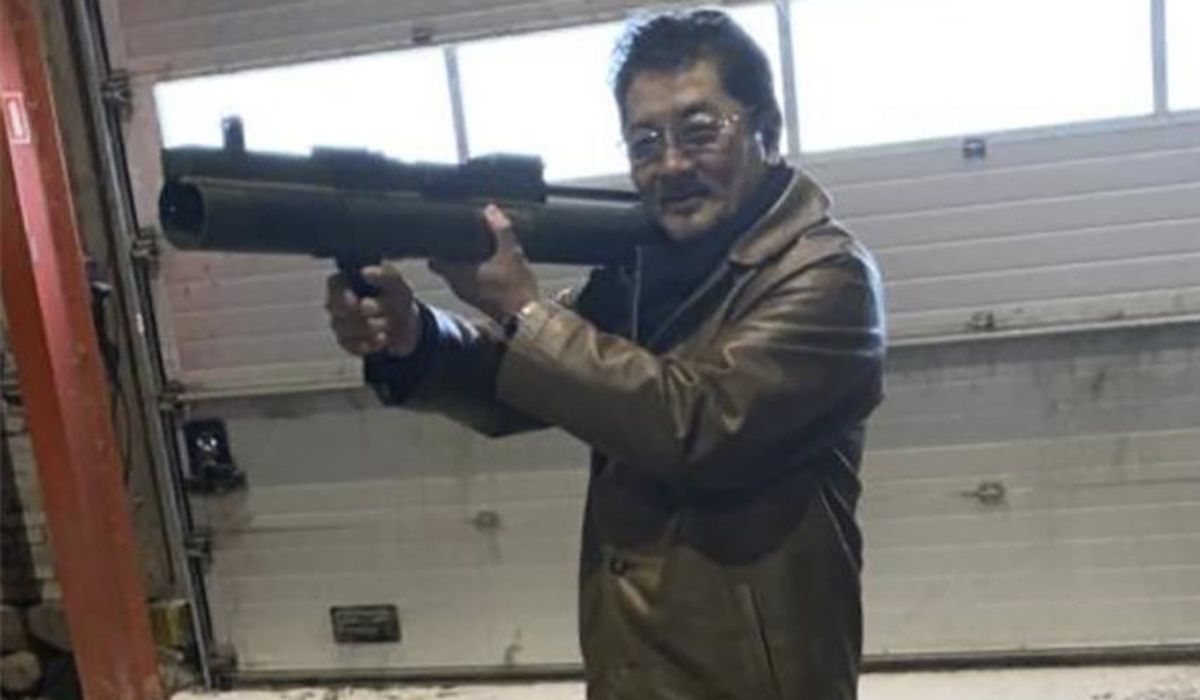Japanese organized-crime chief pleads responsible in U.S. to trafficking nuclear materials

A Japanese national who federal authorities say is a key figure in Japan’s organized crime group, known as Yakuza, pleaded guilty Wednesday in New York to conspiring to traffic in weapons-grade nuclear material in Asia, the Justice Department said.
Takeshi Ebisawa, 60, also pleaded guilty to drug and weapons charges, including conspiracy to send to the U.S. large quantities of heroin and methamphetamine in exchange for surface-to-air missiles intended for rebel groups in Burma.
Ebisawa also was convicted of laundering what he believed was drug money as part of a multi-year Drug Enforcement Administration undercover sting operation.
A court document in the case stated that Ebisawa is a leader of the Yakuza transnational crime syndicate. The case is a rare public disclosure about the activities of the notorious Japanese underworld group.
Yakuza was described by a DEA agent in the case as a highly organized Japanese network made up of “multiple crime syndicates, with affiliates in Asia, Europe, and the Americas.
“The Yakuza are involved in various criminal activities, including weapons trafficking, prostitution, human trafficking, drug trafficking, fraud, and money laundering,” the court document said.
As part of the sting, Ebisawa introduced an undercover DEA agent posing as a narcotics and weapons trafficker to an international criminal network operating in Japan, Thailand, Burma, Sri Lanka, the United States and elsewhere.
During the operation, Ebisawa tried to purchase U.S.-made surface-to-air missiles and other weaponry meant for insurgent groups operating in Burma. The arms were to be paid for in shipments of illegal drugs, according to court documents in the case.
The weapons were to be shipped to the Shan State Army and Karen National Union, two rebel groups in Burma.
The arms were to include three Army portable M72 light anti-tank rocket weapons, 10 7.62 M60 machine guns, 10 5.56 Colt Canada C8 automatic rifles, and 400 Stinger anti-aircraft missiles, according to DEA Agent Thomas P. McLaughlin in a criminal complaint in the case.
In 2020, Ebisawa told undercover sources that he had access to a large amount of nuclear material that he offered to sell. To prove he possessed the material, he provided photos showing rocky substances next to a Geiger counter measuring their radiation. Lab documents also were provided showing he possesses uranium.
That material was seized by law enforcement during the investigation.
Prosecutors said a nuclear forensic laboratory in the United States determined that the nuclear material samples contain detectable quantities of uranium, thorium, and plutonium.
“In particular, the laboratory determined that the isotope composition of the plutonium found in the nuclear samples is weapons-grade, meaning that the plutonium, if produced in sufficient quantities, would be suitable for use in a nuclear weapon,” the statement said.
A lawyer for Ebisawa did not immediately respond to an email request for comment.
DEA Administrator Anne Milgram, in the Justice Department statement announcing the plea, said the case “exposed the shocking depths of international organized crime from trafficking nuclear materials to fueling the narcotics trade and arming violent insurgents.”
The charges made in a February 2024 grand jury indictment against Ebisawa remain for three other defendants in the case identified as Somphop Singhasiri, Bobby Sooksanta Chullanandana, and Sompak Rukrasaraneewho. The three were all arrested in 2022 along with Ebisawa.


